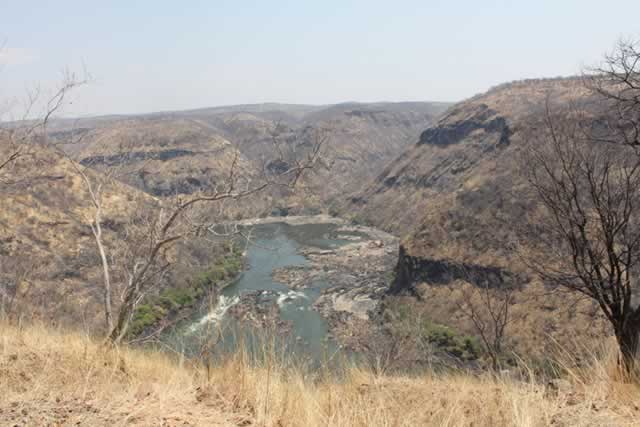An unapologetic tale of the liberation war
Lonemore Ranga Mataire The Reader
Ambassador Agrippa Mutambara’s The Rebel in Me is an exceptional revolutionary narrative that situates itself in the cannon of literature that unequivocally lays the basis upon which Zimbabwe was constructed and born.While the narrative is written from the perspective of a guerilla fighter who actively participated in both combat and strategic planning of the prosecution of the war, no condescending or exaggerated self-praise are foisted on the narrative. Typical of most war novels which are more anchored on biographical progression of the protagonist, the first person narrative does not in any way camouflage the intricately arranged chronology of events that broadly reflect the general encounters of most combatants.
Ambassador Mutambara’s narrative is a revolutionary realistic text, which borrows a lot from socialist realism in that it succinctly prescribes solutions to problems at hand and clearly postulates the ideal nation-state to come after the revolution.
While the text bears the markings of camaraderie that pervades the whole text, there is no slightest hint of snobbishness of glossing over some of the ignoble acts meted out against other comrade refugees in the name of the revolution.
The narrative is crafted in such a way that the overall noble and legitimate inspirational grievances remain on course, and etched in every guerilla fighter. Thus the narrator says: “In narrating some of the twists and turns in my life the intention is not to make a hero of myself or to suggest that my actions of resistance or rebellion were greater than those of others.
“Rather, I am seeking to show the rebel identity in me — the propelling force that led me to the decision to leave the relatively comfortable life that I led for an uncertain and unknown future in the wilderness.”
Just like Mayombe by Pepetela, in The Rebel in Me the reader encounters “thinking” combatants far from the colonial propaganda which depicted them as uneducated reckless killing machines. The combatants have a clear understanding of the issues at stake and their stance has been radicalised not only by the politicisation by older combatants but also by the consciousness of the horrendous existence under a colonial, repressive regime. The fragility of life after crossing into Mozambique is as unsettling as it is hauntingly admirable in that like a typical committed Marxist his spirit remains resolutely focused on the need to receive military training and contribute to the liberation of Zimbabwe.
Ambassador Mutambara alludes to the difficulty in one being accepted as a genuine cadre seeking military training.
He recounts the rigorous process of recruitment that involves being placed at refugee camps for some months without any prospects of being transferred to a military training base. When eventually the narrator is afforded the chance to undergo military training his attitude towards his trainers transforms from antagonistic to admiration, given the hardships that the combatants were to encounter in the actual combat.
The narrative is a no-holds-barred as he directly chides and condemns the attitude of some regional leaders, some of whom worked in complicit with the Ian Smith’s minority regime in undermining and crushing the guerilla war. The founding President of Zambia Dr Kenneth Kaunda is condemned for his partisan support for ZAPU under Dr Joshua Nkomo.
“Unable to change the mindset of ZANLA cadres into accepting the leadership of Dr Joshua Nkomo, President Kaunda employed tactics, fair or foul, to arm-twist them into compliance. It is in this regard that ZANU believed that Dr Kaunda exploited the assassination of Comrade Herbert Chitepo by the Rhodesian forces as the obstacle to unity, which if sidelined or liquidated, would leave the leaderless ZANLA forces with no option but to accept the leadership of Comrade Joshua Nkomo.”
The condemnation is also extended to Botswana, which is portrayed as a surrogate British state given the matrimonial ties that bonded President Seretse Khama with the British. Botswana was regarded by the leadership of the liberation movements with suspicion when it came to its commitment in rendering assistance to Zimbabwe’s armed fighters.
Tanzania is hailed as having made immense contribution to the liberation struggles in southern Africa as a whole through the personal commitment by Mwalimu Julius Kambarage Nyerere.







Comments